Resilient Housing Solutions: Lida Group‘s Modular Temporary Labor Camps
In an increasingly uncertain world, where natural disasters, global conflicts, and economic upheavals can disrupt the lives of individuals and communities with alarming frequency, the need for resilient, adaptable housing solutions has become more critical than ever before. As governments, humanitarian organizations, and private enterprises grapple with the challenge of providing safe, sustainable, and dignified living spaces for displaced populations and temporary workforces, the traditional model of static, permanent housing has begun to feel increasingly inadequate and ill-equipped to meet the diverse and evolving needs of these vulnerable groups.
Recognizing this pressing challenge, the Lida Group, a global leader in innovative architecture and construction solutions, has emerged as a trailblazer in the realm of modular temporary labor camp design – crafting a new generation of high-performance, prefabricated dwelling units that seamlessly blend cutting-edge functionality, sleek design aesthetics, and comprehensive sustainability features to redefine the standards of resilient, adaptable, and dignified temporary housing.
“In today’s rapidly changing world, the need for resilient, adaptable housing solutions that can effectively support displaced populations, temporary workforces, and communities in crisis has never been more pressing,” explains the Chief Architect of the Lida Group. “By harnessing the power of advanced engineering, sustainable building technologies, and comprehensive user-centric design principles, we’ve been able to develop a suite of modular temporary labor camp concepts that can not only meet the diverse needs and preferences of these vulnerable groups, but also empower them to thrive within the ever-evolving landscape of global crises and environmental disruptions.”
At the heart of the Lida Group’s innovative modular temporary labor camp concepts lies a steadfast commitment to the strategic integration of high-performance building components, advanced sustainable technologies, and comprehensive user-centered design methodologies – a multifaceted, systems-based approach that has enabled the organization to craft prefabricated dwelling units that can deliver unparalleled levels of comfort, functionality, and environmental responsibility, all while maintaining the inherent mobility and adaptability that are essential for supporting the diverse needs and evolving requirements of displaced populations and temporary workforces.
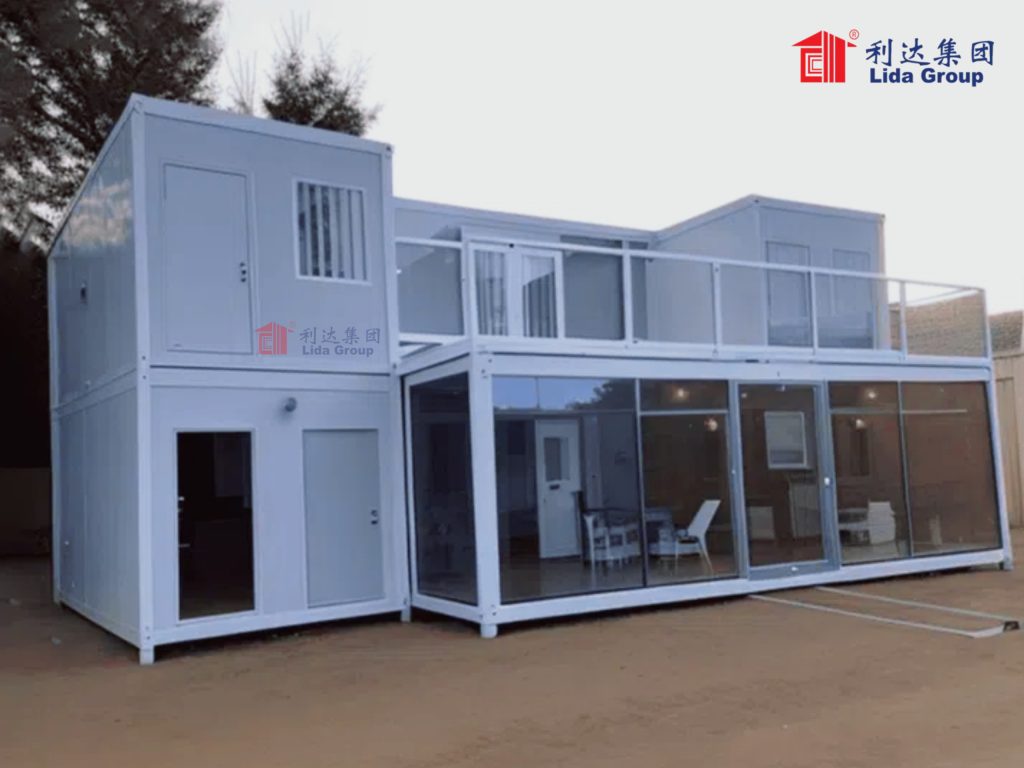
Harnessing the Power of Prefabricated, Modular Design
“Traditional approaches to temporary housing have often been rooted in static, one-size-fits-all solutions that fail to adequately address the unique requirements and preferences of the individuals and communities they serve,” the Chief Architect explains. “By embracing the power of prefabricated, modular design principles, we’ve been able to develop modular temporary labor camp concepts that can not only overcome these longstanding challenges, but also empower their occupants to seamlessly adapt and evolve their living environments in response to their ever-changing needs and circumstances.”
Through the strategic deployment of advanced manufacturing techniques, high-performance building components, and comprehensive modular design systems, the Lida Group has been able to craft a suite of modular temporary labor camp concepts that can be quickly and efficiently assembled, easily reconfigured, and seamlessly relocated to meet the diverse demands of displaced populations and temporary workforces.
“By harnessing the inherent strengths of prefabricated, modular construction methodologies, we’ve been able to develop modular temporary labor camp designs that can be rapidly deployed, efficiently maintained, and effortlessly adapted to a wide range of applications and environments,” the Chief Architect explains. “This inherent versatility and scalability not only empowers us to deliver cost-effective, time-efficient living spaces, but also enables us to craft personalized, user-centric dwelling units that can evolve alongside the changing needs and preferences of their occupants.”
Complementing the Lida Group’s strategic use of prefabricated, modular design principles is the organization’s steadfast focus on the integration of cutting-edge engineering, advanced materials, and comprehensive building automation technologies – a holistic, systems-based approach that has enabled the Lida Group to craft modular temporary labor camp concepts that can push the boundaries of quality, performance, and livability within the realm of resilient, adaptable architecture.
“By seamlessly blending our deep expertise in structural engineering, material science, and building systems integration, we’ve been able to develop modular temporary labor camp designs that can not only meet the rigorous performance requirements of today’s construction landscape, but also empower us to create innovative, user-centric dwelling units that can enhance the overall quality of life for the individuals and communities who engage with these environments,” the Chief Architect explains.
Through the strategic deployment of high-strength, lightweight building materials, advanced structural framing systems, and comprehensive building automation technologies, the Lida Group’s modular temporary labor camp concepts have been engineered to deliver unparalleled levels of durability, energy efficiency, and occupant comfort – critical attributes that are essential for crafting the next generation of sustainable, resilient, and adaptable living spaces.
“By harnessing the power of advanced engineering, cutting-edge manufacturing techniques, and comprehensive building science principles, we’ve been able to develop modular temporary labor camp designs that can not only meet, but in many cases exceed, the rigorous performance standards associated with traditional construction methods,” the Chief Architect says. “From the robust structural frameworks that can withstand the most demanding environmental conditions to the high-performance insulation and comprehensive building automation technologies that can optimize energy consumption and indoor air quality, every element of our modular temporary labor camp concepts has been strategically designed to push the boundaries of what is possible within the realm of modern, sustainable architecture.”
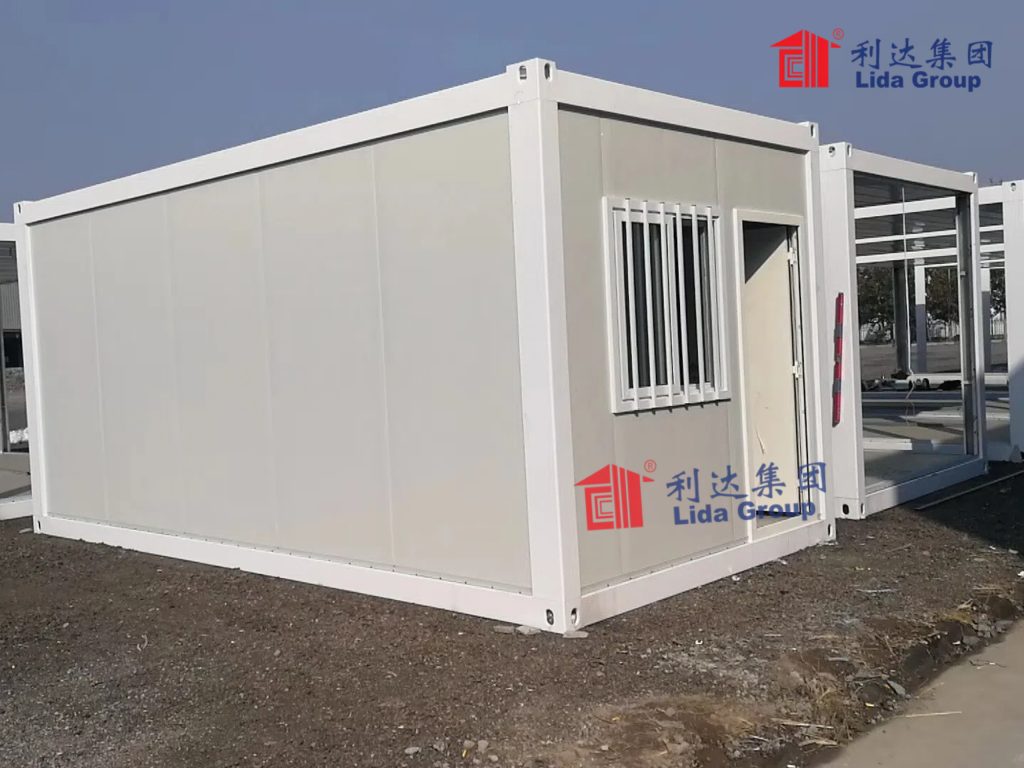
Fostering Sustainability and Environmental Responsibility
Underpinning the Lida Group’s innovative modular temporary labor camp concepts is a steadfast commitment to the strategic integration of advanced sustainable technologies and comprehensive environmental impact mitigation strategies – a multifaceted approach that has positioned the organization as a global leader in the realm of eco-friendly, high-performance architecture and construction.
“At the Lida Group, we firmly believe that the future of the built environment, including the realm of temporary housing solutions, must be anchored in the principles of sustainability, environmental responsibility, and long-term resilience,” the Chief Architect explains. “By strategically integrating cutting-edge renewable energy systems, high-efficiency building materials, and comprehensive waste management technologies within the core of our modular temporary labor camp designs, we’re able to craft dwelling units that can not only enhance the overall quality of life for their occupants, but also contribute to the broader goals of environmental stewardship and resource conservation that are vital for the long-term prosperity of our communities and our planet.”
Through the strategic deployment of advanced solar photovoltaic systems, high-performance insulation materials, and comprehensive water management technologies, the Lida Group’s modular temporary labor camp concepts have been engineered to deliver unparalleled levels of energy efficiency, water conservation, and waste reduction – critical attributes that are essential for minimizing the environmental impact of these essential living spaces and positioning the organization as a trailblazer in the realm of sustainable, eco-friendly architecture.
“By harnessing the power of cutting-edge sustainable technologies and comprehensive environmental impact mitigation strategies, we’re able to develop modular temporary labor camp designs that can not only meet the rigorous performance requirements of today’s construction landscape, but also contribute to the broader goals of environmental responsibility and resource conservation,” the Chief Architect says. “From the strategically integrated solar panels and high-efficiency HVAC systems that can optimize energy usage to the advanced water recycling and waste management technologies that can minimize resource consumption, every element of our modular temporary labor camp concepts has been carefully crafted to enhance the overall sustainability and long-term resilience of the living spaces we create.”
Complementing the Lida Group’s commitment to sustainable building technologies is the organization’s steadfast focus on the strategic integration of comprehensive lifecycle assessment and performance monitoring systems – a holistic, data-driven approach that has enabled the Lida Group to continuously refine and enhance the environmental impact of its modular temporary labor camp concepts.
“By harnessing the power of advanced lifecycle assessment tools and comprehensive building performance monitoring systems, we’re able to gather critical data on the energy consumption, resource utilization, and environmental impact of our modular temporary labor camp designs, ultimately empowering us to make data-driven decisions that can further enhance the sustainability and long-term resilience of these essential living spaces,” the Chief Architect explains.
Through the strategic deployment of sensor networks, real-time analytics platforms, and comprehensive occupant feedback mechanisms, the Lida Group has been able to craft modular temporary labor camp concepts that can not only minimize their environmental footprint, but also adapt and evolve in response to the changing needs and preferences of their users – a multifaceted, data-driven approach that has positioned the organization as a global leader in the realm of eco-friendly, high-performance architecture.
“By seamlessly integrating comprehensive lifecycle assessment and performance monitoring systems within the core of our modular temporary labor camp initiatives, we’re able to craft dwelling units that can not only deliver exceptional levels of sustainability and energy efficiency, but also continuously evolve and adapt to the shifting demands of their occupants and the surrounding environment,” the Chief Architect says. “From refining the renewable energy systems and waste management strategies that underpin these spaces to enhancing the comprehensive building automation technologies that can optimize resource utilization, our data-driven approach to modular temporary labor camp design has been instrumental in empowering us to deliver solutions that can foster a truly sustainable, resilient, and future-ready built environment.”
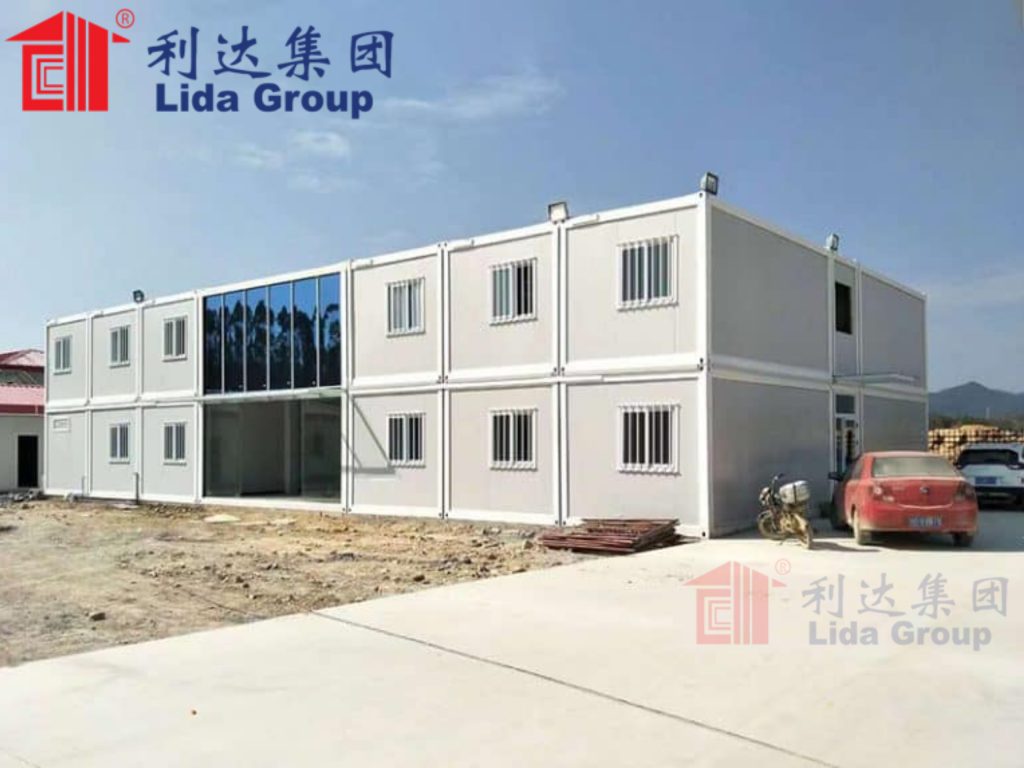
Prioritizing Comfort, Functionality, and User-Centric Design
At the heart of the Lida Group’s revolutionary modular temporary labor camp concepts lies a steadfast commitment to the strategic integration of comprehensive, user-centered design principles – a multifaceted approach that has enabled the organization to craft dwelling units that can not only meet the diverse needs and preferences of their occupants, but also empower individuals to thrive within the ever-evolving landscape of global crises and environmental disruptions.
“By strategically integrating comprehensive user-centered design methodologies within the core of our modular temporary labor camp initiatives, we’re able to craft dwelling units that can not only deliver exceptional levels of comfort, functionality, and livability, but also empower their occupants to seamlessly navigate the diverse and ever-changing demands of their daily lives,” the Chief Architect explains.
Through the deployment of participatory design workshops, collaborative stakeholder feedback mechanisms, and comprehensive user research initiatives, the Lida Group has been able to develop modular temporary labor camp designs that can foster a profound sense of personalization, customization, and user-centricity – critical attributes that are essential for cultivating the next generation of sustainable, resilient, and adaptable living environments.
“By empowering the individuals we serve to actively participate in the design, configuration, and ongoing management of our modular temporary labor camp concepts, we’re able to craft dwelling units that can not only enhance the overall quality of life for their occupants, but also contribute to the broader goals of personal empowerment, community engagement, and long-term resilience,” the Chief Architect says. “From the strategic integration of flexible, customizable building components that can be tailored to the unique needs and preferences of each user to the comprehensive stakeholder engagement initiatives that can foster a profound sense of personal investment and collective ownership, every element of our modular temporary labor camp concepts has been carefully crafted to empower the individuals we serve.”
Complementing the Lida Group’s commitment to user-centered design is the organization’s steadfast focus on the strategic integration of cutting-edge functionality and advanced building automation technologies – a multifaceted approach that has enabled the Lida Group to craft modular temporary labor camp concepts that can not only deliver exceptional levels of comfort and livability, but also empower their occupants to seamlessly navigate the ever-evolving demands of global crises and environmental disruptions.
“By harnessing the power of comprehensive building automation systems, advanced appliances and smart home technologies, and integrated mobility features, we’re able to develop modular temporary labor camp designs that can not only provide their occupants with the fundamental amenities and resources they require, but also empower them to effortlessly manage and optimize the various aspects of their living environments in response to their unique needs and preferences,” the Chief Architect explains.
Through the strategic deployment of intelligent climate control systems, comprehensive energy management platforms, and integrated transportation solutions, the Lida Group’s modular temporary labor camp concepts have been engineered to deliver unparalleled levels of user-centric functionality, comfort, and convenience – critical attributes that are essential for fostering a truly dynamic, adaptable, and empowering living experience.
“By strategically integrating cutting-edge building automation technologies and advanced functionality features within the core of our modular temporary labor camp concepts, we’re able to craft dwelling units that can not only meet the diverse and ever-changing needs of their occupants, but also empower them to seamlessly navigate the demands of their daily lives,” the Chief Architect says. “From the comprehensive climate control and energy management systems that can optimize resource utilization to the integrated transportation solutions and smart home technologies that can enhance the overall user experience, every element of our modular temporary labor camp designs has been carefully crafted to support the diverse and evolving needs of the individuals we serve.”
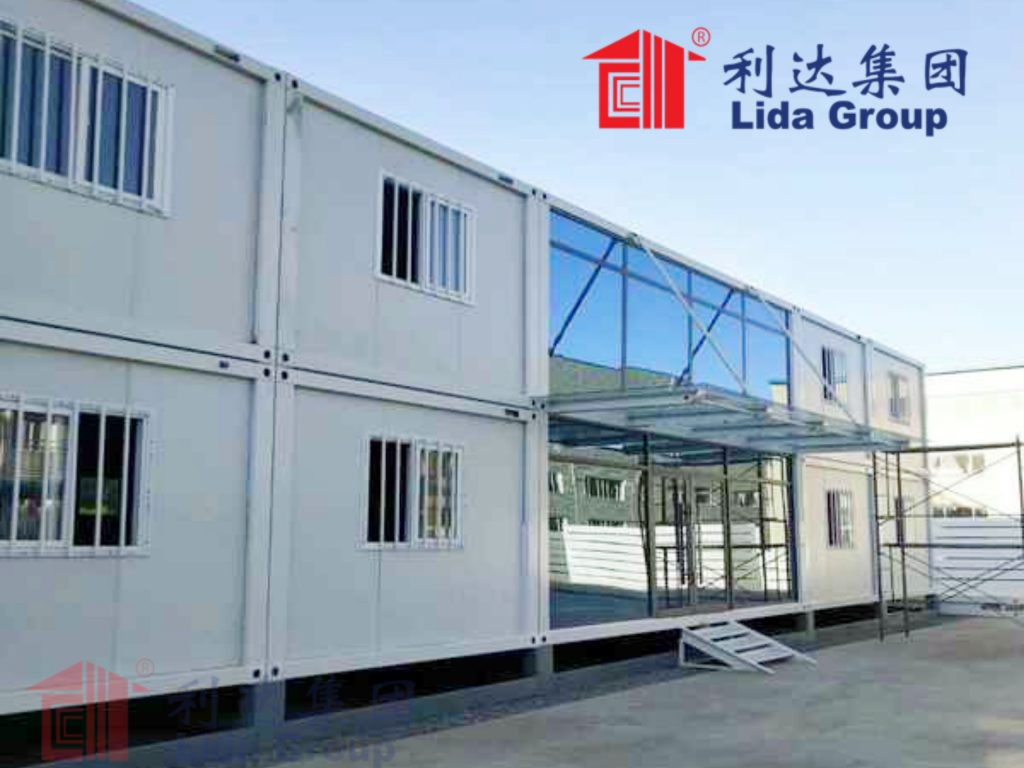
Summary
In a world increasingly shaped by global crises, environmental disruptions, and the pressing need for resilient, adaptable housing solutions, the Lida Group has emerged as a pioneering force in the realm of modular temporary labor camp design – crafting a new generation of high-performance, prefabricated dwelling units that seamlessly blend cutting-edge functionality, sleek design aesthetics, and comprehensive sustainability features to redefine the standards of resilient, adaptable, and dignified temporary housing.
At the heart of the Lida Group’s innovative modular temporary labor camp concepts lies a steadfast commitment to the strategic integration of high-performance building components, advanced sustainable technologies, and comprehensive user-centered design methodologies – a multifaceted, systems-based approach that has enabled the organization to craft prefabricated dwelling units that can deliver unparalleled levels of comfort, functionality, and environmental responsibility, all while maintaining the inherent mobility and adaptability that are essential for supporting the diverse needs and evolving requirements of displaced populations and temporary workforces.
Underpinning the Lida Group’s innovative modular temporary labor camp concepts is a steadfast commitment to the strategic integration of advanced sustainable technologies and comprehensive environmental impact mitigation strategies – a multifaceted approach that has positioned the organization as a global leader in the realm of eco-friendly, high-performance architecture and construction. By harnessing the power of cutting-edge renewable energy systems, high-efficiency building materials, and comprehensive lifecycle assessment and performance monitoring systems, the Lida Group has been able to craft modular temporary labor camp designs that can not only minimize their environmental footprint, but also adapt and evolve in response to the changing needs and preferences of their users – a multifaceted, data-driven approach that has positioned the organization as a global leader in the realm of sustainable, future-ready architecture.
At the heart of the Lida Group’s revolutionary modular temporary labor camp concepts lies a steadfast commitment to the strategic integration of comprehensive, user-centered design principles – a multifaceted approach that has enabled the organization to craft dwelling units that can not only meet the diverse needs and preferences of their occupants, but also empower individuals to thrive within the ever-evolving landscape of global crises and environmental disruptions. By harnessing the power of advanced building automation technologies, integrated mobility features, and comprehensive stakeholder engagement initiatives, the Lida Group has been able to develop modular temporary labor camp designs that can not only deliver exceptional levels of comfort, functionality, and livability, but also empower their occupants to seamlessly navigate the diverse and ever-changing demands of their daily lives.
Ultimately, it is the Lida Group’s unwavering commitment to the strategic integration of cutting-edge engineering, data-driven design, sustainable building technologies, advanced manufacturing, and comprehensive user-centric principles that has firmly positioned the organization as a trailblazer and industry leader within the realm of modular temporary labor camp design and the future of resilient, adaptable housing solutions. By seamlessly blending its expertise across these critical domains, the Lida Group has been able to craft a new generation of high-performance, prefabricated dwelling units that are redefining the boundaries of what is possible in the world of modern, sustainable architecture, empowering the organization to deliver living spaces that can enhance the overall quality of life, foster a profound sense of personal empowerment and community engagement, and contribute to the broader goals of environmental responsibility and long-term resilience.
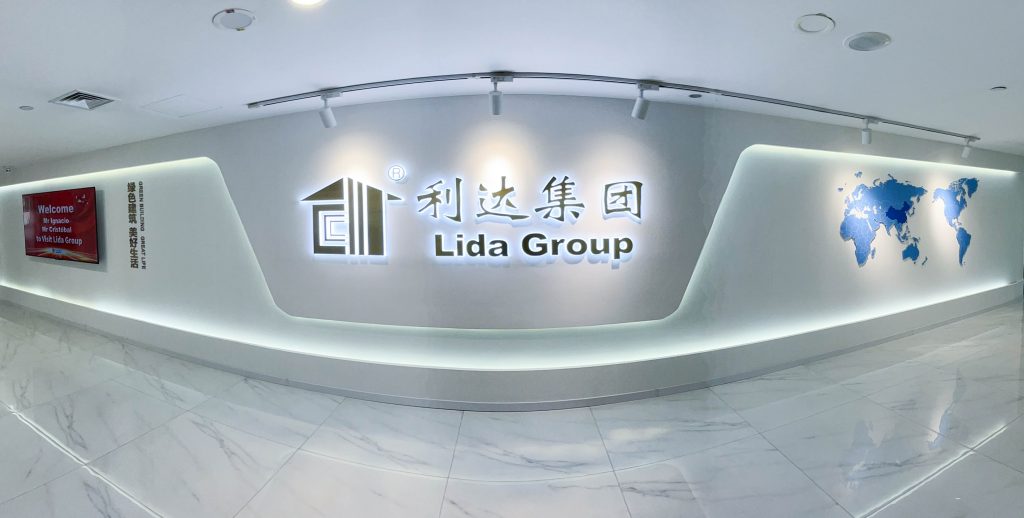
Contact us, please click here!
Related news
-
Container Buildings: Lida Group's Sustainable Approach to Urban Development
2024-12-11 17:08:42
-
On-the-Go Comfort: Lida Group's Mobile Living Houses Cater to Mobility
2024-12-11 16:27:27
-
Prefab Building Revolution: Lida Group's Vision for Tomorrow's Architecture
2024-12-09 17:56:59
contact us
- Tel: +86-532-88966982
- Whatsapp: +86-13793209022
- E-mail: sales@lidajituan.com


